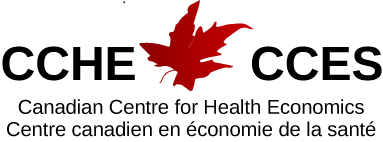
CCHE Seminar Series: Emmanuelle Arpin
A Cost-Utility Analysis of a Postnatal Breastfeeding Intervention in Ontario: Examining the Short and Long-Term Costs and Effects for the Mother-Infant Dyad
The benefits of breastfeeding for child and maternal short- and long-term infections and illnesses is well-established in the clinical epidemiological literature. This research has shown that longer duration and exclusivity of breastfeeding offers the greatest protection against infections and illnesses. However, the proportion of women who exclusively breastfeed up to 6 months as recommended by the World Health Organization remains suboptimal in many developed countries, such as in the province of Ontario at 27%. The purpose of this study is to estimate the clinical and economic benefits of breastfeeding for the infant-mother dyad, as well as the cost-utility of a postnatal breastfeeding intervention, compared to standard care (no intervention) in Ontario. We built a two-part infant-mother microsimulation model to estimate lifetime healthcare costs, life expectancies and quality-adjusted life years (QALYs) for the infant and mother. Part 1 consisted of a microsimulation with monthly cycles for the first year of life post-birth (12 months; mothers age 30 at baseline). Infections and illnesses included in part 1 were infant infections (otitis media, respiratory tract infections, gastroenteritis), maternal depression, maternal caregiver stress, as well as infant and maternal all-cause mortality. The infant and mother were modelled together, with the child’s infection or death affecting the mother’s probability of caregiver stress and depression during the first year of life post-birth. Part 2 consisted of a mother-infant microsimulation with annual cycles over a lifetime horizon after the first year of life post-birth. Illnesses included in part 2 were child weight (normal, overweight, obese) and type 2 diabetes, as well as maternal cancers (breast, ovarian) and type 2 diabetes. We calculated healthcare costs, QALYs and life expectancies gained from each strategy, as well as the incremental cost-effectiveness ratio (ICER: Δcosts/ΔQALYs). We adopted a public healthcare perspective and discounted costs and effects by 1.5%. Probabilistic sensitivity analyses were conducted for parameter uncertainty. Data on costs, QALYs and transition probabilities were collected from various sources. The study provides a first cost-utility evaluation of a postnatal breastfeeding intervention for the infant-maternal dyad in Ontario, reporting also on the clinical and economic benefits of breastfeeding. This two-part microsimulation model may serve as a breastfeeding policy tool for public health decision-makers.
Emmanuelle Arpin is a third year PhD Candidate in Health Economics at the Institute of Health Policy, Management and Evaluation (IHPME) at the University of Toronto. Her research interests lie in health and family economics. Her doctoral dissertation explores child health and development at the interface of family investments and socioeconomic inequalities. Her work with the Child Health Evaluative Sciences Division at SickKids focuses on cost-effectiveness research relating to breastfeeding programs in the Canadian context. She holds an MSc in Sociology from the University of Montreal and a BA in Sociology from McGill University.
Join the CCHE Health Economics seminar series mailing list by sending a request to cche@utoronto.ca
 |
 |
Related Events

Sign up for IHPME Connect.
Keep up to date with IHPME’s News & Research, Events & Program, Recognition, e-newsletter.
Subscribe to Connect Newsletter
Get in Contact
Communications
Marielle Boutin
Email Address: ihpme.communications@utoronto.ca
